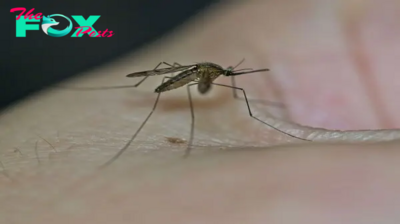US News
Climate change raises concerns for future of marathons and runner safety: Analysis
As extreme weather conditions escalate across the world, marathons and long-distance races are succumbing to cancellations due to extreme heat and severe flooding, an occurrence that may intensify in the coming years.
The Twin Cities marathon in Minnesota, which has been running for 40 years, experienced its second cancellation on Oct. 1, 2023, this time due to extreme heat. The previous cancellation occurred in 2020 due to COVID-19.
Similarly, the TCS New York City Marathon training series 18M was called off on Sept. 30, 2023, due to the severe flooding New York was experiencing.
The TCS New York City Marathon went on as scheduled in 2022, but runners experienced a record-hot day resulting in many heat-related injuries.

The latest report from the Intergovernmental Panel on Climate Change (IPCC) -- the United Nations group keeping record of climate change -- documented a trend of increased floods, droughts, storms and a general rise in temperatures. Rising temperatures driven by human-induced greenhouse gas emissions are intensifying heat waves in cities and worsening air pollution problems.
According to a study published in Nature Scientific Reports, there is a potential 27% decline in the number of viable cities worldwide to host the Olympic marathon by the late twenty-first century due to climate change and the expected summer weather in their regions. The authors suggest holding the Olympic marathon in October as an adaptation strategy.
Warm and hot temperatures can be dangerous for long-distance runners. According to the organization, Road Runners Club of America (RRCA), runners can lose between six and 12 ounces of fluid every 20 minutes, putting athletes at risk of dehydration.
MORE: How El Nino will affect the US this winter
"As you exercise, your core temperature increases and the body needs to cool itself down. It does this by sweating … evaporation is the main mechanism of cooling down," says Dr. Sonia Tolani, associate professor of Cardiology at Columbia University Medical Center at New York Presbyterian Hospital. However, she adds, "When you sweat, you are getting rid of salt. If people don't replenish that salt, they can have electrolyte imbalances, which can in some cases lead to brain swelling."
Heat stroke is another major concern "[if] you are not able to quickly cool yourself down, you can become ill and develop what we call heat stroke." Symptoms of heat stroke include throbbing headache, confusion, nausea, dizziness, dry or damp skin, and rapid and strong pulse. "Heat stroke is a non-insignificant cause of death in young athletes," Tolani says.
In light of these Health risks, organizers of marathons and long-distance running events face the challenge of navigating climate change impacts and deciding whether to proceed with the events. According to the RRCA's Safe Events Guidelines, events face cancellation or postponement if the dew point exceeds 80 degrees Fahrenheit at the race's start time.
Furthermore, an Air Quality Index (AQI) surpassing 50 calls for a reduction in the event's distance to minimize exposure time. If the AQI climbs above 151, the guidelines recommend the event's postponement or cancellation to ensure the safety and well-being of participants.
Marathons could also be affected by the increasing frequency of wildfires, driven by the impacts of climate change, which have brought heightened attention to air quality across the United States in the recent summer months.
In 2018, the Monterey Bay Half Marathon was canceled due to raging wildfires nearby. Other sporting events, including Major League Baseball and National Women's Soccer League Games, were postponed this summer over air quality concerns.
Air pollution can lead to nasal congestion, nose inflammation, and irritation in the windpipe, says Dr. Ravi Kalhan, Deputy Division Chief of Pulmonary and Critical Care Medicine at Northwestern University. People may have difficulty breathing, Kalhan says, and the inflammation caused in the body by air pollution could increase the risk of clots.
MORE: Highest ocean temperatures ever recorded for the month of May, NOAA says
People exercising breathe in more potentially dangerous air. Kalhan says "when you exercise [and engage in] high-level training, you breathe in more air and breathe in deeper. The total amount of exposure to the smoke along the surface area of the lung is thought to be higher, resulting in a higher burden of exposure."
These issues are a problem for endurance athletes, says Kristin Aunan Ph.D., climate scientist and Research Director at Center for International Climate Research (CICERO). But they're also dangerous for anyone who spends time outdoors. "We are very concerned about people who can't just cancel their activities like outdoors workers, people who work in construction, and agriculture," she says.
Tolani has been training for the 2023 TCS New York City Marathon and the recent cancellation of the 18M training series was disappointing, she says.
The training series recreates the race environment including medical tents and Gatorade stations. "There are people there watching. You're losing those safety nets when things like that get canceled," she says. "I was looking forward to doing it. In case I didn't feel great, I just wanted people to be around."
More than 50,000 runners are signed up for the TCS New York City Marathon scheduled to take place on Nov. 5, 2023.
Genevieve Jing, M.D. is a resident physician in psychiatry at New York Medical College and is a member of the ABC News Medical Unit.
-

 US News9h ago
US News9h agoPro-Palestinian Protesters Burn American Flags and Deface Monuments Amid Clashes With Police in D.C.
-

 US News15h ago
US News15h agoWatch Live: President Joe Biden Delivers Oval Office Address After Ending His Bid for Re-Election
-

 US News15h ago
US News15h agoU.S. Health Departments Warn About Mosquitoes Testing Positive for West Nile Virus
-

 US News1d ago
US News1d agoRecords Show Deputy Charged in Sonya Massey’s Fatal Shooting Worked for Six Agencies in 4 years
-

 US News1d ago
US News1d agoWill Donald Trump Debate Kamala Harris? Here’s What We Know
-

 US News1d ago
US News1d agoThe Prosecutor Versus Felon Narrative Helps No One
-

 US News2d ago
US News2d agoAuthorities Release Body Cam Footage from Deputy Shooting Black Woman in Her Home
-

 US News2d ago
US News2d agoSilicon Valley Leaders Have Taken to Donald Trump. Could Kamala Harris Win Them Over?



























